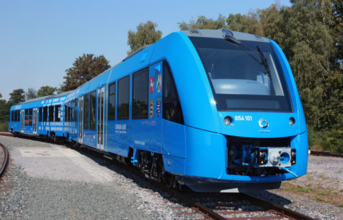
Transport Minister Olaf Lies said: "From now on there will be a real alternative to diesel trains in non-electrified rail transport. Hydrogen and fuel cells are an ideal combination for climate protection as well as for the energy and transport revolution. They allow the storage of energy and emission-free travelling on rail. We fund innovative technologies and make a sustainable contribution to the energy revolution in the transport sector. I am pleased that Alstom will build the trains in Lower Saxony, thus further strengthening their production site in Salzgitter."
Enak Ferlemann, Parliamentary State Secretary at the Federal Ministry of Transport and Digital Infrastructure (BMVI), declared: "Emission-free, energy-efficient and cost-effective - trainsets with fuel cell drive are an environmentally friendly alternative to diesel locomotives. To strengthen the industrial site of Lower Saxony, we want to fund LNVG's project by investing around 8.4 million euros. The funds are to be provided from the National Innovation Program for Hydrogen and Fuel Cell Technology (NIP 2)."
Menn und Hoffmeister, whose transport authority organizes regional transport on rail between the North Sea and the Harz Mountains, yearly spending tax revenues of nearly 300 million euros for it, emphasized during the contract signing: "Fuel cell technology has good chances to prevail in Germany in the next 10 to 15 years, with diesel vehicles being more and more forced out of the market," as both outline the future of rail transport.
END


























